As the first female African American student at Oxford College of Emory University, Ann Slaughter saw the institution as a ‘multicultural academic oasis’ during a time when overt racism was more the norm than the exception.
While 2020 has been an eventful exercise for everyone, Oxford College of Emory University marks it as an important milestone in the institution’s pursuit of diversity and inclusion. Oxford in February held a BlackOUT Alumni Reunion Weekend to recognize its 30/50 honorees, celebrating 50 years of African American graduates and 30 years of MLK Scholars.
The first African American students at Oxford graduated in 1970: Anthony Gibson, John Hammonds and Ann Slaughter (formerly Ann Jinks). All three were active in various student groups, and Slaughter served as president of the women’s advisory council. She feels strongly that Newton County should appreciate the diversity and enriching experiences that Oxford College has brought—and continues to bring—to the community. However, her choice to attend the school was largely a matter of practicality.
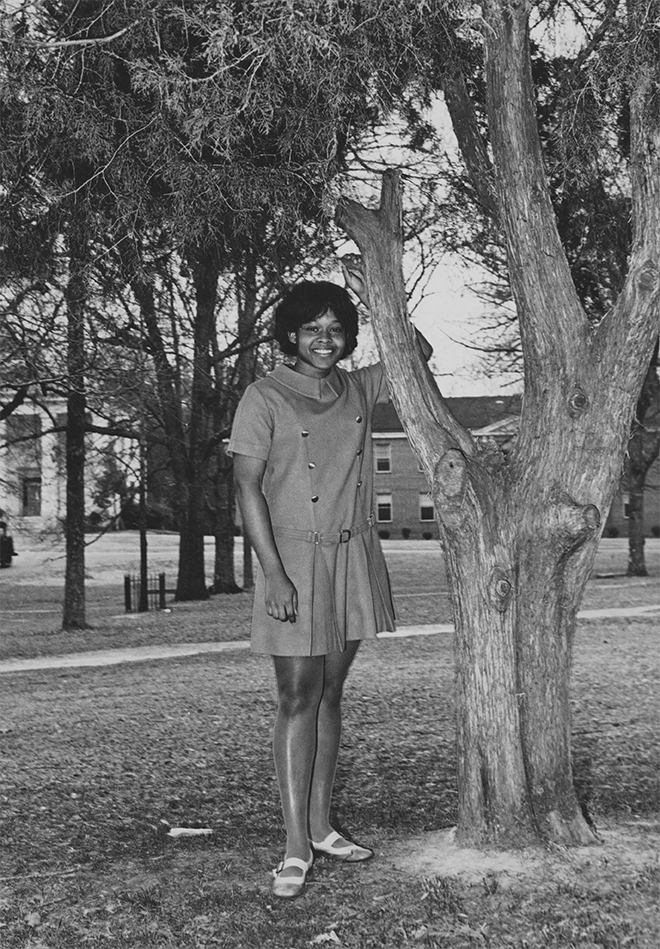
“I graduated from Southwest High School in Atlanta. It had only been desegregated for a few years, and when I transferred in my junior year, it was the first integrated school I attended,” Slaughter said. “My high school counselor and English teacher believed in me. They encouraged me to apply because Oxford was looking to bring on minority students. They also offered a small scholarship. Being at an integrated high school helped me make the transition to Oxford.”
Even though she felt somewhat prepared for life on campus, Slaughter still had concerns over what it would be like to be the first female African American student at Oxford.
“I lived in Atlanta, and Newton County was not known to be a very welcoming place for African Americans at that time. It’s actually not a myth that there are two Georgias,” Slaughter said. “There’s metro Atlanta, and there’s rural Georgia. That’s still true. In the 1960s, it was easier to make transitions in Atlanta because you didn’t have the overt racism that you experienced in more rural areas.”
Ann Slaughter
Slaughter found herself welcomed and treated respectfully by her professors and fellow students. “Oxford ended up being a safe haven,” she said. “It was a multicultural academic oasis in the middle of a community where you could never know how you might be treated if you weren’t white.” For many of her classmates, Slaughter was the first African American person they had met. “I had a lot of fun in the dorm with these naive young girls who had not ever had a black friend in their lives,” she said with a laugh. “One girl from Florida said to me, ‘I just never have seen a black person face to face before.’ The girls used to like to watch me press my hair. It was fun being introduced to each other’s cultures.”
Although life on campus was favorable, Slaughter recalls one frightening off-campus incident in clear detail.
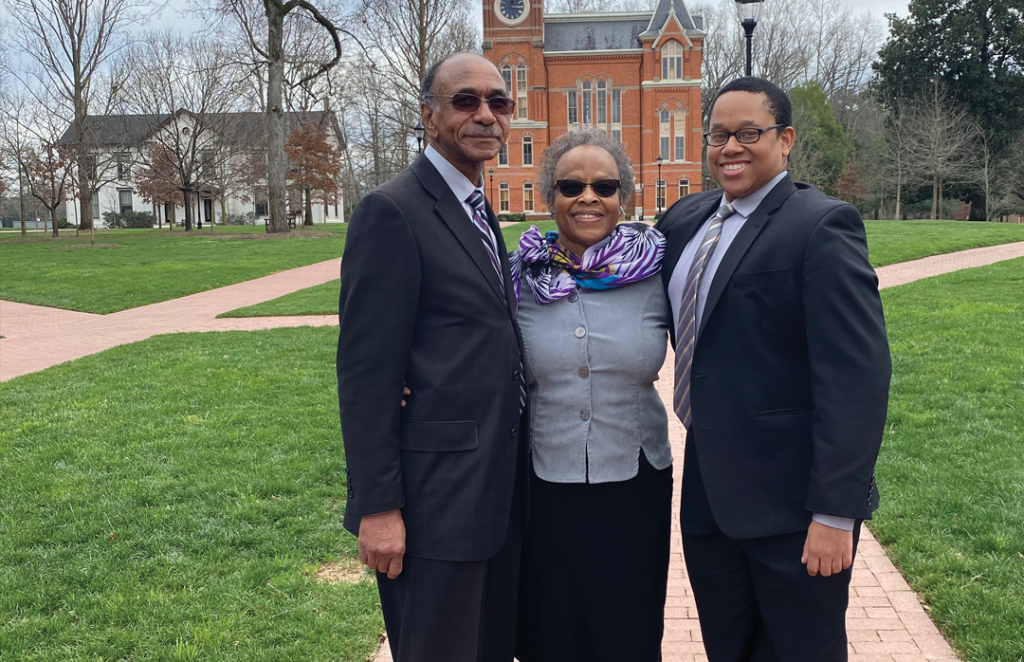
“[Anthony Gibson] and I went on a double date with a white couple from school. I don’t think they realized what might happen, but I had heard plenty of rumors and stories,” she said. “We went to Social Circle, to a drive-in to get something to eat, and the other customers started throwing out all kinds of racial slurs and comments. Tony could be aggressive when people said things like that. I was telling him that we just needed to be quiet and go. I’ve never been that scared in my life. After that, I just never ventured off campus again unless I was going home to Atlanta.”
Slaughter initially planned to study computer science but ended up majoring in psychology.
“I’m glad I flunked out of logic class and decided to pursue psychology instead,” she said. “It fits me better. I’ve always been drawn to human service projects.”
“In the years since Ann Jinks Slaughter, Anthony Gibson and John Hammonds broke ground as Oxford’s first African American graduates, the college has grown to enroll just under 1,000 first- and second-year students representing 46 states, 29 countries and an incredible range of diversity of backgrounds and experiences. Oxford’s campus diversity is one of our biggest strengths and gives students a tremendous opportunity to learn from one another.”
Laura Gafnea, Oxford College of Emory University Director of Community Relations
After graduating from Emory University on the dean’s honor list, she found work with several nonprofits.
“I always had an affinity for working with young African American men, and I worked for nonprofits that helped them, including the United Way [and] the Boys and Girls Club—which was only the Boys Club back then,” Slaughter said. “In the late 1980s, I was the founding director of Jerusalem House, a permanent housing program for people living with AIDS. It was an eye-opening, rewarding experience, and I did that for 10 years.”
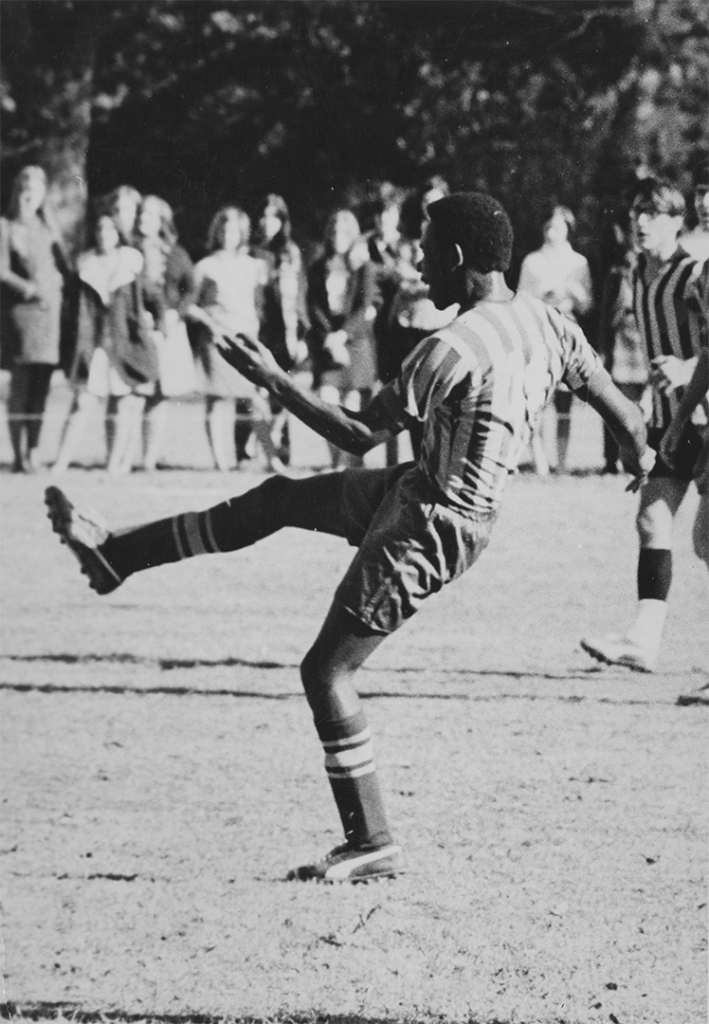
Slaughter later worked with the City of Atlanta, evaluating its homeless programs before moving on to the Centers for Disease Control. She currently serves as a program manager for the CDC’s National Center for Emerging and Zoonotic Infectious Diseases and plans to retire in 2022. Her connection to Oxford College includes many “firsts.” She was the school’s first female African American student and her family’s first college graduate; and her son, Otis Jinks, later became one of Emory College’s first MLK scholarship recipients. The Martin Luther King Jr. Scholarship is a four-year, full-tuition scholarship to Oxford College and Emory University, awarded each year to a Newton County student who meets the merit and financial need requirements.
“Oxford College’s first MLK scholar, Sonya Tinsley-Hook, graduated in 1989,” Oxford College Director of Community Relations Laura Gafnea said. “It is a great community initiative that has graduated excellent leaders in our community.”
Oxford’s commitment to diversity, inclusion and equality helps prepare students for a global life experience. Slaughter agrees that diverse experiences help prepare young adults for life in the real world, and she encouraged her own sons to go on summer mission trips to Kenya and Central America.
“Immersing in another culture is so important. You learn things you can’t learn any other way,” she said. “It’s so important to really understand how other people live, to find out how much you have to be thankful for; and you also find out that we are all really more alike than we are different.”
As she reflects on the significance of this 30/50 anniversary, Slaughter hopes today’s students will learn from her generation’s experiences.
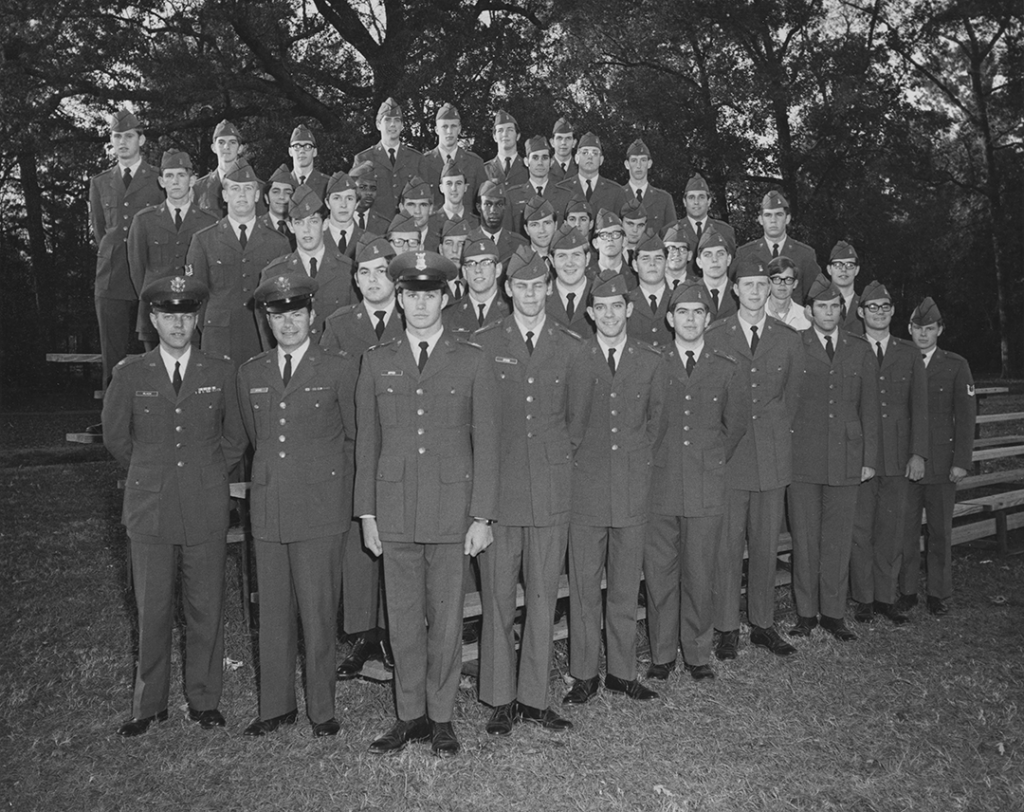
“It’s always been a challenge to get my sons to sit down and read or watch about their history,” she said. “Only now, with all these recent arrests, are they getting a taste of the many things we lived through. I can remember going out with my grandmother, when things were ‘Colored Only’ and you sat in the back of the bus. They need to know how our history has shaped our present. Some things you need to learn about so they don’t happen again.”
Click here to read more stories by Kari Apted.

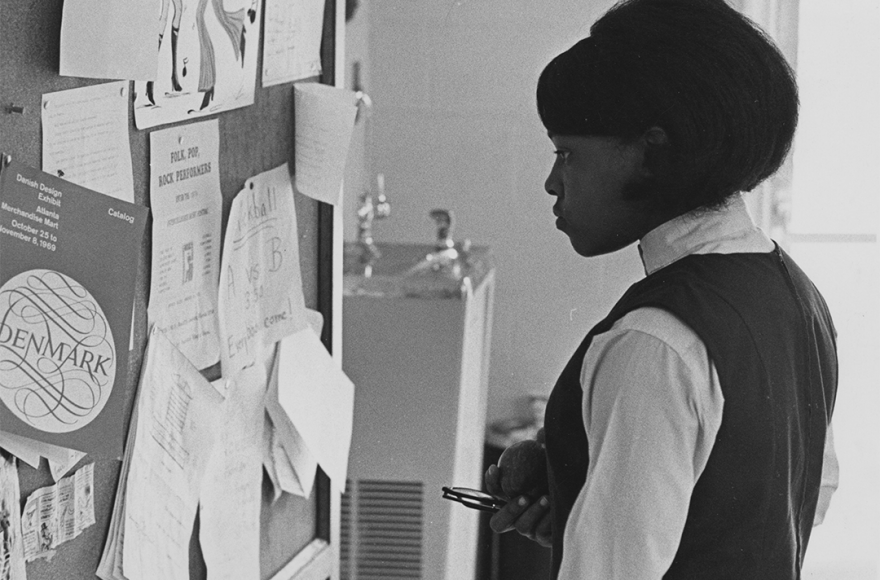
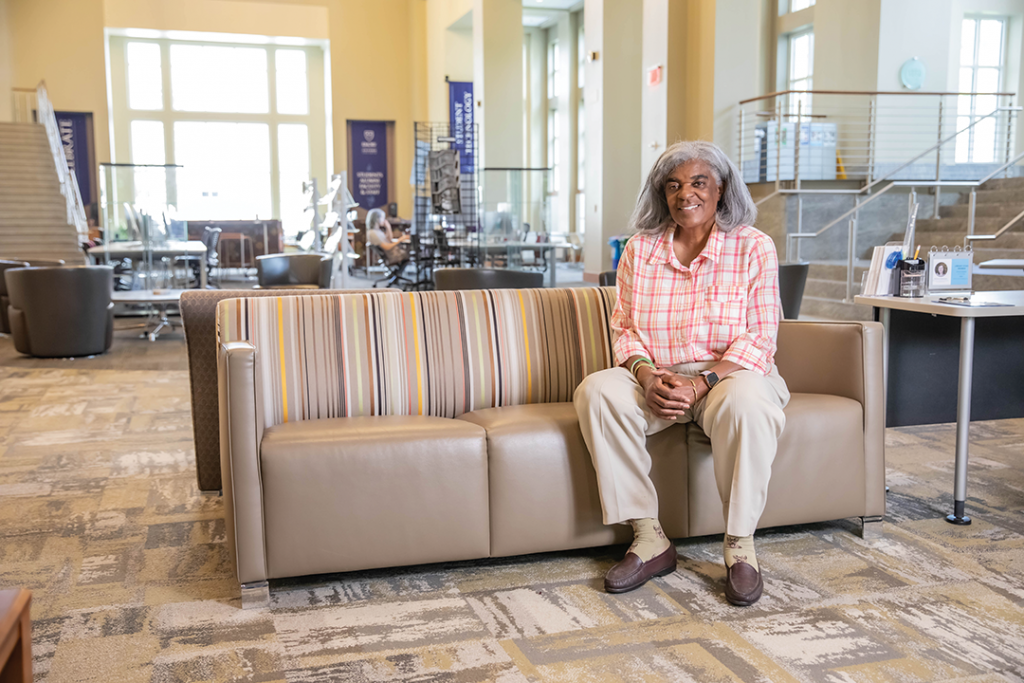
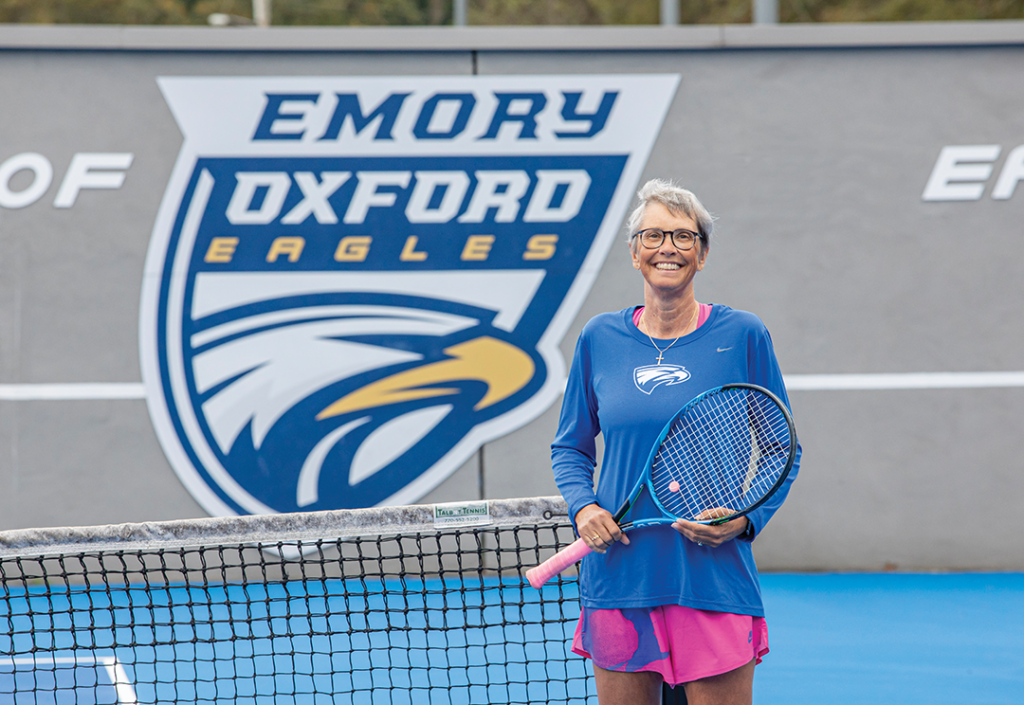
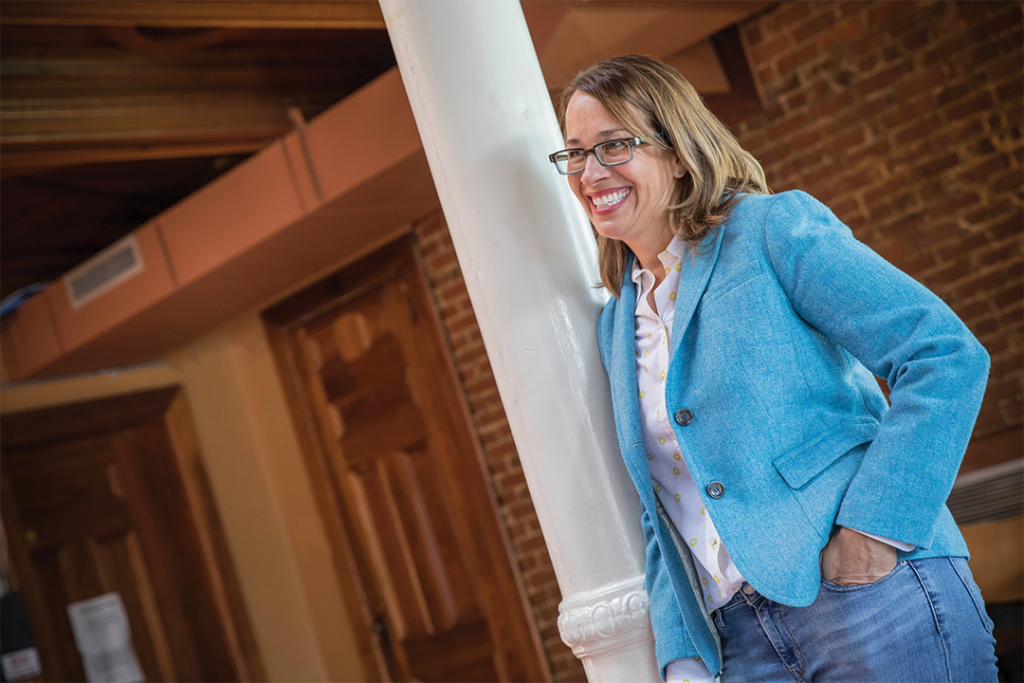
2 comments
An outstanding interview and look at Oxford College of the late ‘60s.
Ann Slaughter is an amazing person and I had the privilege of meeting her in February 2020. Thank you Ann for your courage, kindness, and grace. So proud of Oxford alumni making the world a better place.